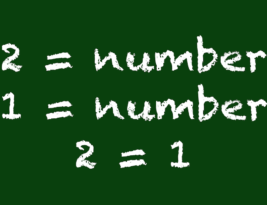Not long ago, I read Babe: The Gallant Pig to my children as part of our ongoing building of a family canon of literature. I remember when the movie adaption came out (I won’t tell how old I was to avoid self-incrimination) and recalled that I had not been impressed at that time. However, in following our standard practice, the movie viewing was proffered following the completion of the reading of the book. …
Category: Philosophy
[ This post originally appeared on my classical teacher site, Locus Classicus. ] [ Concluded from Part 1 ] For myself, I desire to take the classical Christian tradition with the utmost seriousness, meaning that I do not simply reject something found in it because it is not immediately apparent to me how that thing is sensible and might be true. On the other hand, our tradition itself permits us to imagine that, if we …
[ This post originally appeared on my classical teacher site, Locus Classicus. ] I want to approach this seemingly counter-productive question (at least for those of us involved in CCE, Classical Christian Education), by discussing two pretty provocative classical statements that recently came to my attention regarding politics and theology. These two statements, one from the 4th century B.C. and the other from the 16th century A.D. stake out the position that there is a …
Say what one will about mythology; there are times when it is an incredibly deep store of verifiable human knowledge drawn from experience and made more powerful through allegorization. Take Virgil’s remark in Book IV of the Aeneid that as soon as Aeneas and Dido have, according to Juno, been married, immediately “Rumor flies through Libya’s great cities. Rumor, swiftest of all the evils in the world.” Who is this Rumor? What happens if we pay attention …
I’m really enjoying starting a year long study of Introductory Logic with a fantastic group of students at Kepler Education! But, you might wonder if we really need to study Logic? In his wonderful book, Socratic Logic, the eminent Christian philosopher Peter Kreeft gives several compelling reasons to study Logic. Here’s a sampling of the many good reasons that Kreeft provides: The question is not what you can do with logic, but what logic does …





